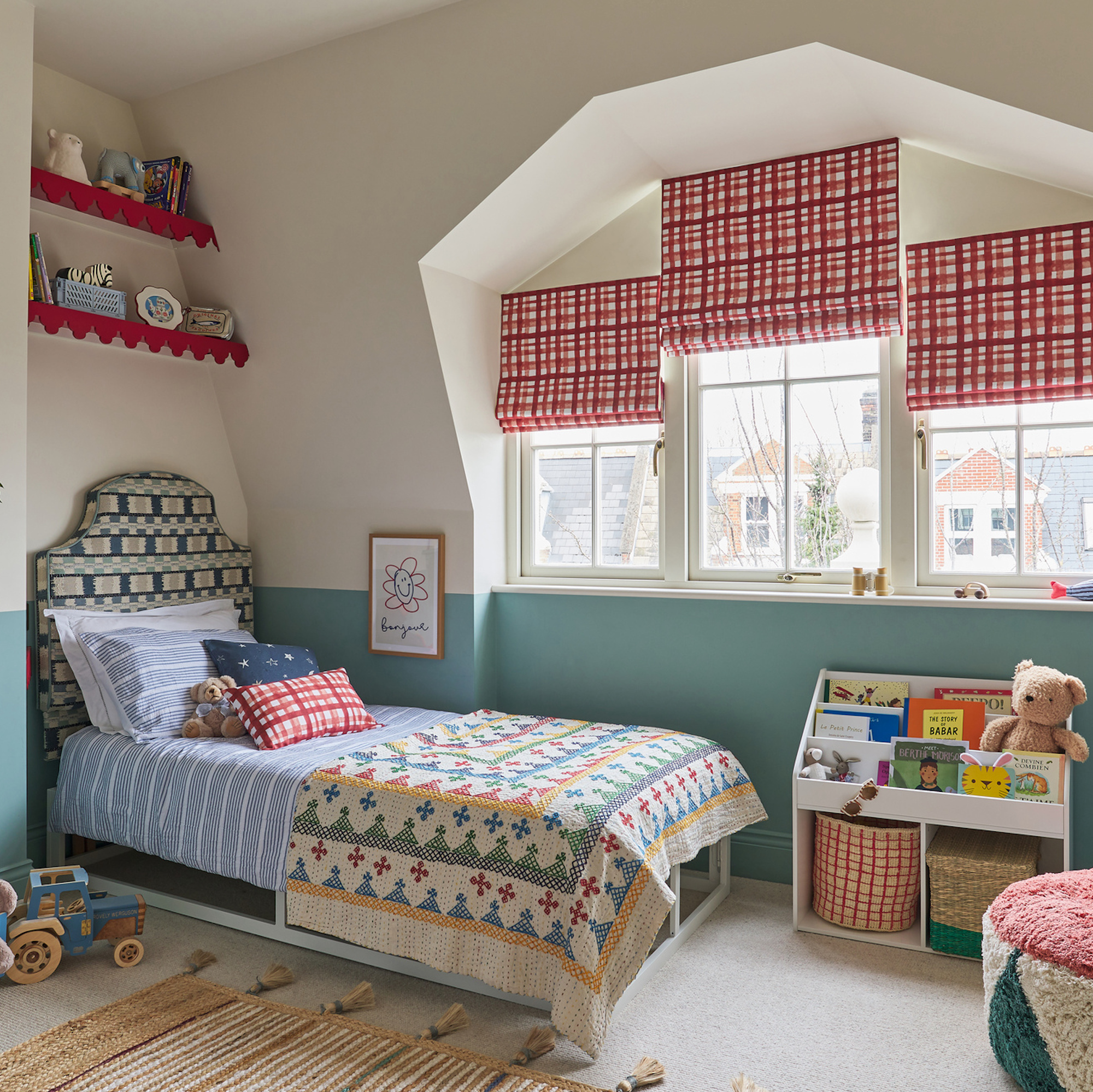
Somewhere between the poster paint primary colours of school playrooms and the pared-back tones of 'sad beige parenting', there's the perfect calming colour palette for children's rooms. These soothing Goldilocks hues hit the 'just right' sweet spot between overstimulating and downright dull in a kid's bedroom, with the happy consequence that both kids and parents will be thrilled with the results.
'People often think that calming interiors need to be neutral in tone, but colour can have a huge impact on your mood and on creating a calm ambience,' explains Lou Petersen, head of design innovation at DFS.
Calming colours for kids' bedrooms
'Nature remains a key source of inspiration for interiors and is known for its grounding effect,' continues Lou Petersen, 'so one way to use colour to create a sense of calm is to opt for a palette that reflects shades found in the natural world, such as soft blues and greens. Using a mix of these shades across upholstery pieces will create an easy-going yet cohesive look.'
We spoke to experts in calming colours for kids' bedrooms, from designers to scientists, to find the best hues to create a soothing and stylish scheme for little ones. These ideas are so good, the adults are sure to learn from them, too…
1. White and pale neutrals
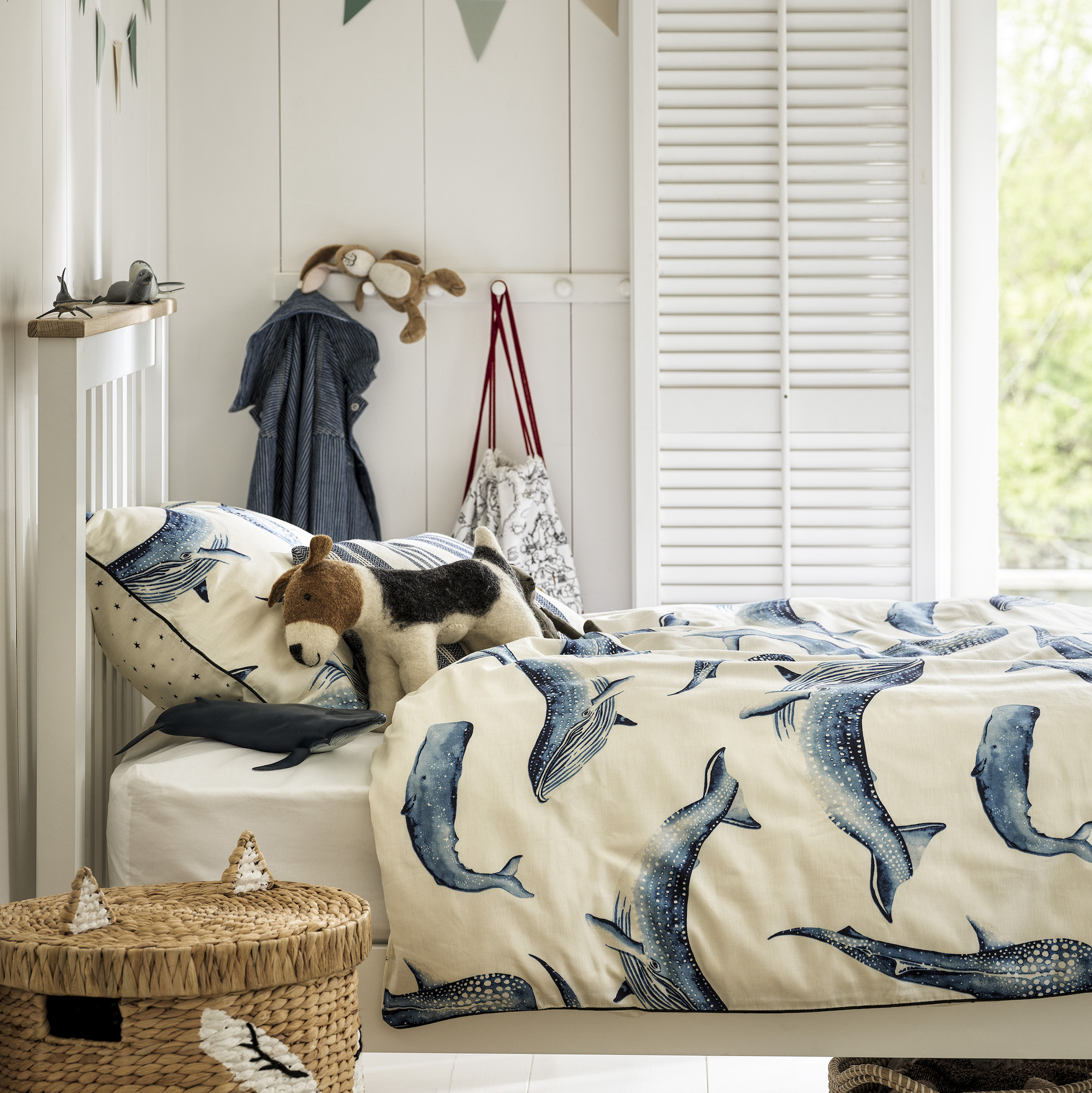
Think kids and white bedroom ideas don't mix? Think again. Walls are surprisingly easy to keep clean, thanks to scrubbable and hardwearing white paints. Decorating with white also has the added bonus of making small children's rooms appear bigger. Then there's the fact that white and other pale neutral colours are naturally relaxing, making them a great base as calming colours for kids' bedrooms.
'When space is tight, the colour palette you choose can make a big impact. Focus on a soothing, neutral palette that forms a flexible foundation – opt for light, neutral base colours such as soft whites, greys or light yellow for walls, ceilings and larger furniture pieces,' suggests interior designer Zara O'Hare, for nursery brand Jojo Maman Bébé.
'Have fun mixing natural textures such as wool knits, linen, wood grains and subtle patterns including stripes, triangles or abstract prints, which add cosy interest,' Zara continues.
'Then layer cheerful pops of colour like aqua, lime green, or even bright orange sparingly on bedding, small decor items and artwork. A few colourful accents will keep it fun without overwhelming a smaller room.'
2. Warm and earthy tones
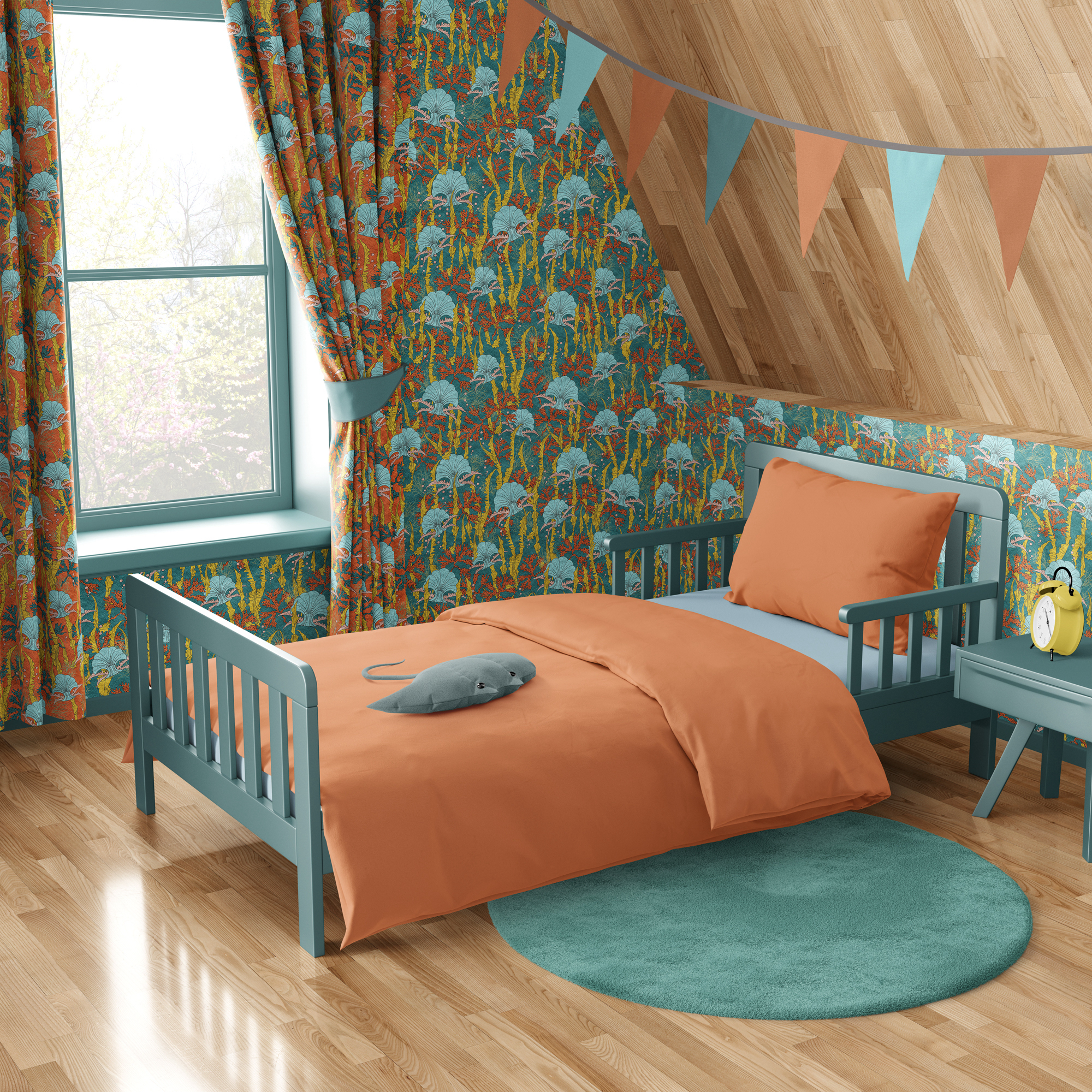
The trend for caramel, chocolate and toffee tones we're seeing across interiors translates beautifully to children's room colour ideas. These comforting colours are cocooning and cosy, creating a calming space for kids to spend time in.
'Natural earthy tones combined with light shades of wood are very calming for children's bedrooms,' agrees Rina Patel, director at Vastu Interior Design.
For a super-soothing effect, especially if your young one can find it hard to slow down or has trouble sleeping, think about these colours for the lighting in their room, too.
'To improve sleep, it is an idea to include a low-level night light with red or amber rays in your child's room,' Rina advises. 'Warm colours like red or amber are better for sleep, while blue light from electronic devices should be avoided as it can disrupt the sleep-wake cycle. Projecting mobiles for babies or gently twinkling lights for preschool children can encourage sleep and become part of the bedtime routine.'
3. Soft and natural greens
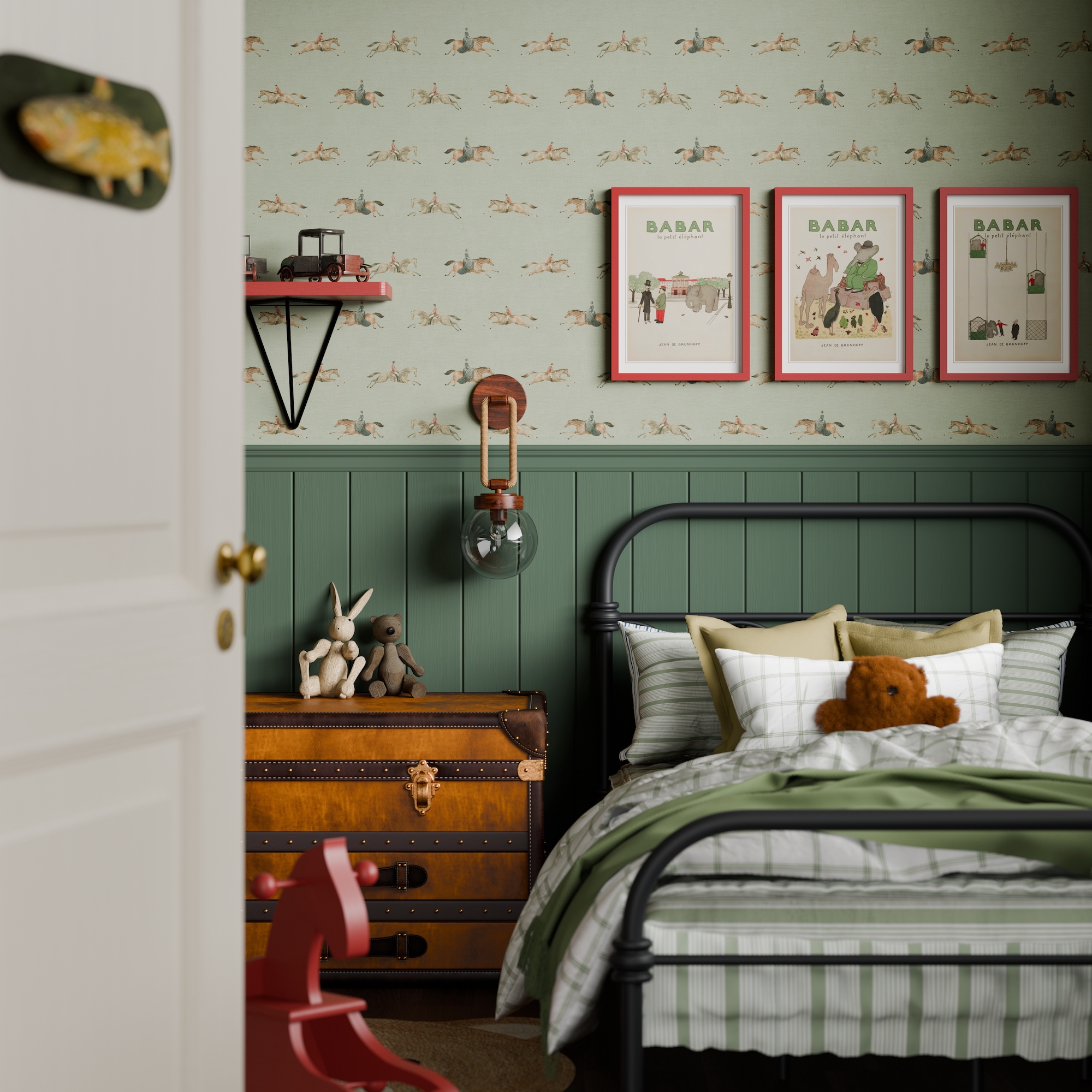
For a kids' room that combines calming colours with longevity as they progress from tot to teen, then you can't go wrong with green. And if you colour drench your green bedroom from ceiling to floor, even better.
'A spectrum of green shades – ranging from blue-greens, aqua, jade, to pale olive tones – is particularly soothing,' suggests interior designer Rina Patel. 'Creating a room scheme using similar hues while avoiding high contrast colours creates a serene environment. Green-based schemes are grounding, gender-neutral and remain appealing as the child grows older.'
This instinct is backed by science. 'Greens are the most eye-friendly of colours as they combine the cheerfulness of yellow with the mellowness of blue,' explains chartered clinical psychologist Dr Melody Smith for JoJo Maman Bébé. 'Evidence shows that blues reduce stress and promote creativity, and are a popular choice for a child’s room. Blues can also encourage more creative approaches to problem-solving. Yellow is a happy colour that is best used in small amounts, for example as an accent or balancing colour in a nursery.'
4. Zoned and Zen colours
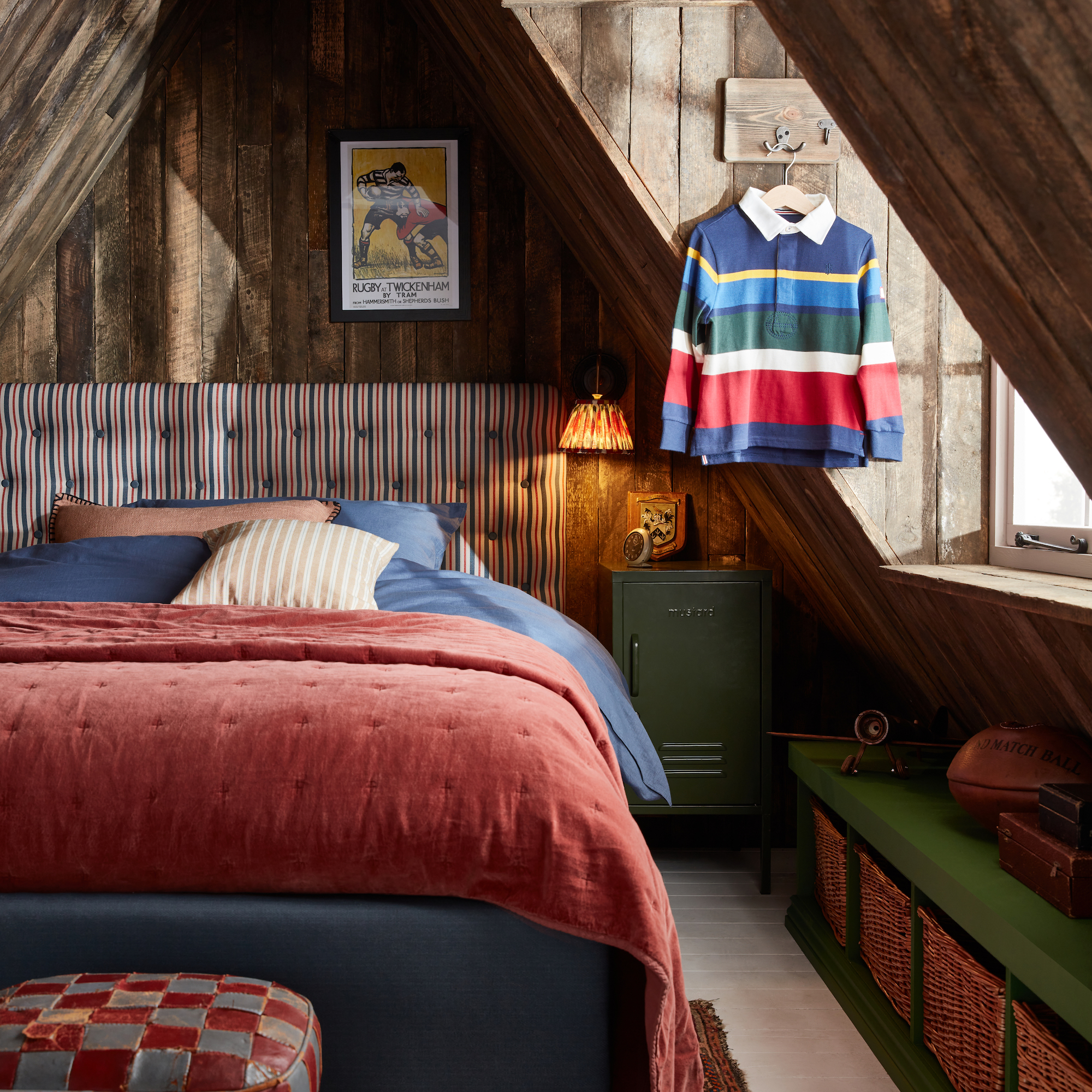
Bright shades do have their place in children's rooms but the trick is to create a balance of zoned colourful areas and Zen calm areas, so the space doesn't become overstimulating.
'A calming bedroom can make a real difference to a child’s bedtime routine, helping to create a tranquil atmosphere that encourages them to sleep. However, in the day, it’s also important that this space feels like an engaging, playful space that they can make their own,' says Kellie Wyles, head of upholstery at DFS.
'As the bed is likely to be the largest piece of furniture in a child's bedroom, choosing a statement headboard that stands the test of time and will take them through to the tween years is a great way to anchor the scheme.
'To keep the bed the standout piece in an otherwise tranquil scheme, go for light and airy wall and floor coverings in complementary plain tones to keep the scheme calming, yet still interesting.
'You could also pair the bed and headboard with darker colours to create a scheme that’s calm, comforting and cocooning, building the look by layering with heritage prints such as checks or tartans, and a dash of rich green.'
5. Unexpected red

The unexpected red trend – using accents of bold red to elevate the look of a room – works surprisingly well in kids' bedrooms, when it's done right.
While big blocks of bright colour can be overstimulating, smaller red details can create a happy, creative space for children to spend time in. Interior designer Zara O'Hare, working with Jojo Maman Bébé, explains.
'When painting a nursery, avoid bright blocks of colours such as reds, oranges or yellows. These colours can be overstimulating and may not promote a calming environment in which your little one can get ready for rest. While not strictly a colour, it's worth mentioning that overly busy patterns can be distracting or overstimulating for infants too.'
But here's where it gets interesting…
'Red in moderation can transform a room into a cheerful space. It can also improve performance on detail-oriented tasks,' says chartered clinical psychologist Dr Melody Smith. 'A bit of red can liven up a room, but too much might be overwhelming. Balance is key - it's great to mix colours in children's bedrooms.'
6. Storytime murals
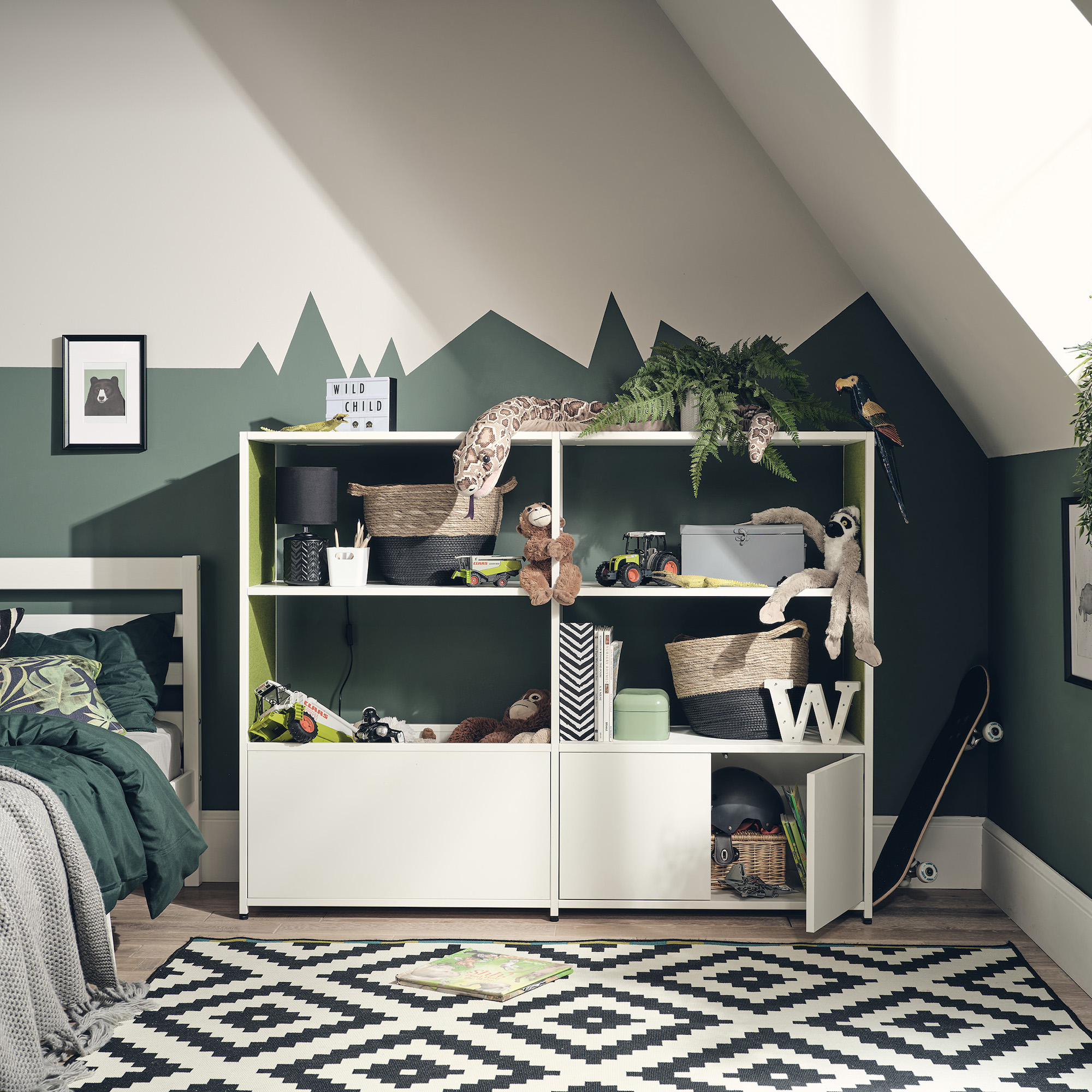
Calming colours for kids' bedrooms don't simply need to be plain shades. Adding texture, small patterns and even murals can create a cocooning space that kids find soothing and immersive.
'Textured wall coverings with small prints or self-patterns on all walls can create a cosy, "hug-like" feel, and murals can provide a fully encompassing experience and atmosphere depending on the pattern,' explains interior designer Rina Patel.
'Rugs and play mats can also add colour and pattern to the room without being visible when the child is in bed, so they won't be distractng when they are trying to sleep.'
As the experts show, there's a huge range of possibilities when choosing calming colours for kids' bedrooms, which gives plenty of scope for you and your children to explore your creativity while still creating a soothing sanctuary that you can all enjoy.







